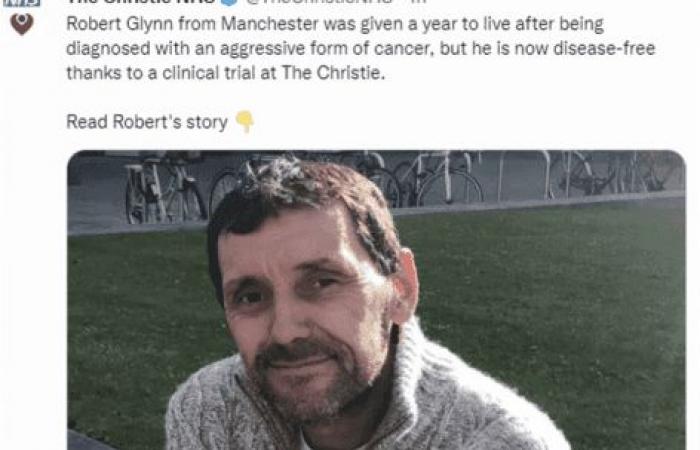THE ESSENTIAL
- In 2019, an English patient was declared doomed to die within 12 months from advanced bile duct cancer.
- He participated in a clinical trial and began immunotherapy treatment.
- The tumors shrank, could be operated on and post-operative analysis showed that they no longer contained cancer cells.
“I asked my doctor to be honest with me and tell me how much time I had left [à vivre], explained Robert Glynn, an English welder, to The Guardian. She told me 12 months.“Today, this patient with bile duct cancer is completely cured thanks to treatment immunotherapy received as part of a clinical trial.
A diagnosis of very advanced bile duct cancer
In 2019, Robert Glynn, then aged 49, was diagnosed with bile duct cancer at a very advanced stage. In addition to the bile ducts, his adrenal glands and liver are affected. The doctors, believing that the tumors cannot be operated on, tell him that he only has 12 months left to live.
There are two types of bile duct cancer, or cholangiocarcinoma, depending on the French National Society of Gastroenterology (SNFGE). The first is called intrahepatic and manifests itself as a liver tumor. The second, called extra-hepatic, is due to a narrowing of the bile duct. In the majority of cases, the symptoms of bile duct cancer appear at an advanced stage of the disease, which explains why they are generally fatal, explains the MSD Manual.
Immunotherapy: a new glimmer of hope
For the management of his illness, Robert Glynn is referred to the fondation Christiespecializing in the treatment of cancer in Europe. He begins an immunotherapy treatment, already validated for cancers of the lung, kidney and esophagus, but which is still at the clinical trial stage for that of the bile ducts. According to the Gustave Roussy cancer center, immunotherapy “consists of using the body’s immune defenses to attack cancer cells and destroy them”.
Treatment with immunotherapy, supplemented by chemotherapy sessions, then shows spectacular results. After just a few months, the tumors shrank significantly, allowing doctors to operate on them. Post-operative analysis of the tumors revealed that none contained cancer cells. This result perfectly illustrates the potential of immunotherapy in the treatment of advanced cancers.
“Most patients with this diagnosis [de cancer] don’t have as many mutations in their cancer cells, so treatment won’t be as effective, but it highlights the importance of personalized medicineexplains Juan Valle, oncologist at the Christie foundation. This could lead to a change in how we treat patients like Robert in the future.“
Check out our digital video work,
only an account creation is required to access it.






